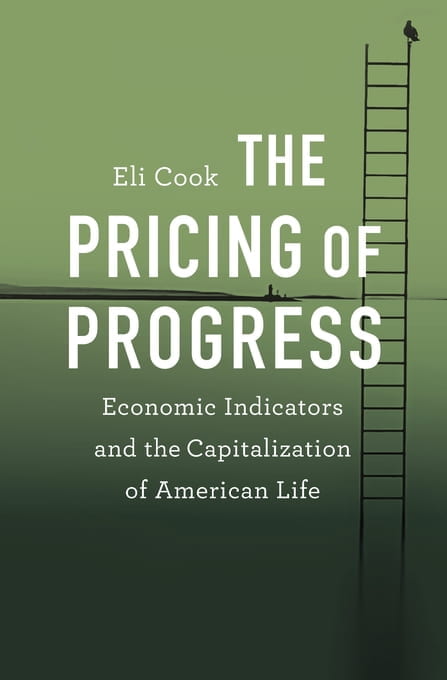By Contributing Editor Simon Brown
In this podcast, I’m speaking with Eli Cook, assistant professor of history at the University of Haifa, about his new book, The Pricing of Progress: Economic Indicators and the Capitalization of American Life (Harvard University Press, 2017). The book has been honored with the Morris D. Forkosch Book Prize from the Journal of the History of Ideas for the best first book in intellectual history, and with the Annual Book Prize of the Society for US Intellectual History for the best book in that field.

In The Pricing of Progress, Cook tells the story of how American businessmen, social reformers, politicians, and labor unions came to measure progress and advocate policy in the language of projected monetary gains at the expense of other competing standards. He begins this account with the market for land in seventeenth-century England, and moves across the Atlantic to explain how plantation slavery, westward expansion, and the Civil War helped lead Americans to conceive of their country and its people as potential investments with measurable prices even before the advent of GDP in the twentieth century. He traces an intellectual history that leads the reader through the economic theories of thinkers like William Petty, Alexander Hamilton, and Irving Fisher on the one hand, and quotidian texts like household account books, business periodicals and price indices on the other. Throughout, he shows how the rise of capitalism brought with it the monetary valuation of not only land, labor and technology, but of everyday life itself.
Listen to the full conversation here.




Leave a Reply